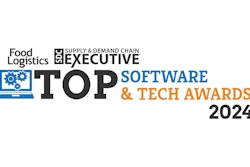
Research from IFS shows despite high levels of AI optimism among service companies, hurdles still stand in the way of successful AI adoption and deployment.
Limited skills & expertise (38%), ethical/safety/security concerns (36%), and a legacy-based technology landscape (36%) were identified as the top service factors slowing adoption progress. What’s more, only 58% of respondents working in the service industry felt their industry was adopting AI at a faster pace than others—the lowest score out of all industries surveyed.
Christian Pedersen, Chief Product Officer, IFS, says, “At the surface level, the lack of optimism across some respondents may suggest we are at the edge of a trough of disillusionment, particularly following the all-encompassing hype that AI enjoyed for much of the last 18 months. The lofty expectations for AI bely a fundamental misunderstanding of how it is supposed to drive value. The real power lies in Industrial AI, where data flows through every part of your business, combining structured, interlinked datasets to uncover insights, optimize every process and marry the digital with the physical world. If a business doesn’t have a strategy to reach that point, then they need a partner who can guide them on that journey."
Key Takeaways:
- There is optimism about the benefits of AI. Cost reductions/margin gains (31%) and mitigating risk (31%) are the two areas where service companies expect AI to make large differences. Sustainability planning also correlates directly with overall AI optimism. The less wide-ranging an industry’s sustainability strategy was with regard to AI, the less likely they were to be optimistic about AI in general.
- Interestingly, most service respondents that have an AI strategy for sustainability believe it can have the biggest impact through quality control and reducing product discarded (22%), alongside regular simulation and optimization of the business targeted to meeting sustainability goals (22%).
- There are more insights and actions in the Industrial AI: the new frontier for productivity, innovation and competition Executive Report.
















![Pros To Know 2026 [color]](https://img.sdcexec.com/mindful/acbm/workspaces/default/uploads/2025/08/prostoknow-2026-color.mduFvhpgMk.png?ar=16%3A9&auto=format%2Ccompress&bg=fff&fill-color=fff&fit=fill&h=135&q=70&w=240)


